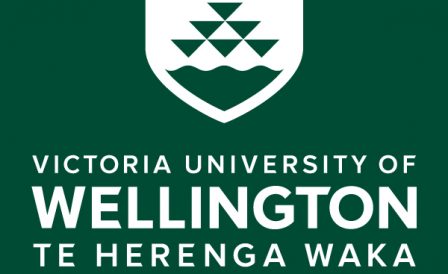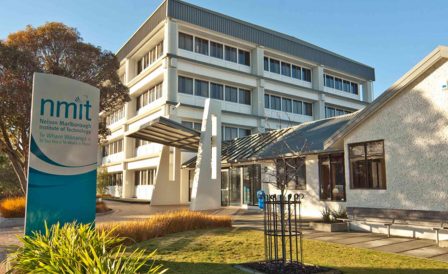A master’s degree is the next step after a bachelor’s, and it can open the door to career advancement, academic research, or a change in professional direction. However, not all master’s programs are the same: they differ in structure, objectives, and teaching methods. These differences determine not only what and how you will study, but also the opportunities available to you upon graduation.
Types of Master’s Degrees
Coursework Master’s
This program is primarily based on structured courses: lectures, seminars, group projects, exams, and assignments. It is well-suited for those who want to gain a broader theoretical and practical foundation. Such programs usually conclude with a small research project or dissertation, but the main focus and time investment is on coursework.
Research Master’s / Master’s by Thesis
In this format, the main emphasis is on independent research conducted under the supervision of an academic advisor. The program culminates in the writing and defense of a substantial research work — the thesis.
There are also blended formats, where coursework and research are balanced in equal measure, as well as professional master’s programs, designed with a focus on specific careers or industries.
| Format | Content | Final Work | Focus | Best Suited For |
| Coursework Master’s | Courses, assignments, exams; sometimes a small project or essay | Small research project / dissertation (30–60 credits) | Lectures, seminars, group work | Those who want more professional knowledge and practice without a focus on PhD |
| Research Master’s | A few courses + independent research | Dissertation (90–120 credits) | Majority of time spent on research | Those aiming for deeper academic expertise and/or pursuing a PhD |
| By Thesis Master’s | 100% independent research, no coursework | Full thesis (40,000+ words) with defense | Pure research, no coursework | Students who already have a defined topic, prior research experience, or a clear plan for PhD |
| Mixed Format (Coursework + Thesis) | Initial coursework followed by research (thesis). Typically, the first part of the program is coursework, then thesis (90–120 credits). | Completed thesis + coursework component | Program divided into two parts: theoretical (coursework, usually 1–2 semesters) and research (major thesis or dissertation under supervision). | Those who want to strengthen their theoretical foundation before moving into research |
| Professional Master’s | Applied courses, practice, internships | Project, report, practice-based work, sometimes exams | Practical skills and professional experience | Students seeking a career in industry rather than academia |
Similar programs are offered across a variety of institutions in New Zealand, including both public universities and certain private providers. Tuition fees vary depending on the institution and level of study, ranging on average from NZD 27,000 to NZD 60,000 per year.

Advantages of Thesis-Based Master’s Programs
- Flexible study schedule
The absence of an intensive coursework load provides more freedom in organizing your academic and working time independently. - Full work rights
A Master’s by Research / by Thesis grants international students full work rights. During the program, you are not restricted to 25 hours per week but are allowed to work full-time. - Flexible living arrangements
In most cases, thesis students are not required to reside in the same city as the university campus. Since the program is centered on independent research, strict residency requirements do not apply. However, at the initial stage, there are usually several compulsory lectures or seminars to attend on campus. Their number depends on the university and typically concludes within the first 1–2 months. - Scholarships and funding
At some universities, research-based master’s programs open access to a wider range of scholarships and grants. Therefore, if you are truly committed to an academic career and consider yourself a “person of science,” you may significantly reduce the actual cost of study through financial support. - Depth and originality
You will produce a substantial research thesis that often contains original scientific findings and allows for a level of academic immersion not available in coursework-based programs.
- Preparation for PhD
A research master’s program is often considered a direct pathway to a PhD, as many of these programs are specifically designed as preparatory stages for doctoral-level research.
Disadvantages of Thesis-Based Master’s Programs
- High level of self-management required
Unlike coursework-based master’s programs, where the study process is structured, thesis-based programs require students to plan and manage most of their own work. There is no fixed lecture timetable, and success depends largely on self-discipline and motivation. - Fewer opportunities for practice and academic networking
Because there are very few group classes, formal seminars, or collaborative projects, students have limited opportunities for practical training and peer interaction. While this may suit independent learners, it can be a drawback for those who value campus life and teamwork. - Heavy and continuous workload
Research demands constant involvement. Data collection, analysis, rewriting, and drafting chapters are lengthy processes that cannot be completed quickly. Delays in one stage can disrupt the entire schedule. - Need for good academic skills
Ability to write academic texts. Research competence in the chosen field. Strong English proficiency: students must be able to express complex academic ideas and work extensively with English-language sources.
- Financial risks of extended timelines
If the thesis is not completed within the expected timeframe, additional semesters result in extra tuition fees and increased living costs.

Who Should Choose a Thesis Master’s
- Students with a good level of self-organization
With the right approach, combining a master’s degree (level 9) with full-time work offers significant benefits not only financially during the study period, but also in the long-term perspective of progressing toward residency and citizenship. - Students with a strong academic background
A thesis-based master’s requires solid knowledge in the chosen field, skills in academic writing, and familiarity with research methods. Prior experience in coursework, bachelor’s theses, research projects, or publications is particularly valuable. - Those planning an academic career
If your goal is to teach at a university, work in research centers, or pursue a PhD, the thesis format is an ideal preparation. It develops the ability to formulate research questions, conduct independent investigations, and present results according to international academic standards. - Those with strong research ambitions
If you are motivated by the process of generating new knowledge — from defining a research question to analyzing data — and want to immerse yourself in a highly specific topic, a thesis program provides that opportunity.
Who It’s Not For
- Who prefer a clear academic structure
If you feel more comfortable with a fixed timetable of lectures, regular assignments, and continuous classroom feedback, a research program may seem too unstructured. - Dislike or struggle with extensive writing
A thesis typically ranges from 30,000 to 50,000 words — not including drafts, revisions, and supporting reports. - Who find long-term projects challenging
Satisfaction comes only after the thesis defense, often a year or more later. There are few interim results or achievements along the way. - Those with limited English proficiency
Thesis work requires dealing with complex academic texts, journal articles, and regular correspondence with your supervisor — all in English. - Those seeking practical skills and networking opportunities
Compared to coursework master’s programs, thesis-based study offers fewer opportunities for applied practice and peer networking. Yet these are essential for improving English, finding employment, and adapting socially in a new country.

How to Choose a University and Program
Selecting the right university and master’s format in New Zealand, especially for research-based programs, involves assessing not only tuition costs but also the institution’s strength in your specific field.
Certain world-class faculties in New Zealand are concentrated in particular universities: for example, Engineering at the University of Canterbury, Marine Biology at the University of Otago, and Ecology at the University of Waikato.
Key steps:
- Identify your specialization and ensure that the university offers active research projects in this area.
- Compare faculty rankings and the publication output of departments.
- Consider the availability of laboratory facilities, access to archives, and partnerships with industry — factors that are particularly important for applied research.
Comparing Structure and Requirements
Depending on the institution and program, the structure of study may vary. While the core is always writing a thesis, some research/thesis programs may include 1–2 compulsory courses followed by the thesis.
In comparison, coursework-based formats usually consist of 8–10 course modules and a final project/mini-thesis, but they often take more time to complete.
Key factors to check:
- Required level of campus attendance
- Frequency and format of progress reports
- Whether a preliminary Postgraduate Diploma is required as a mandatory entry stage
Application Deadlines and Visa Timing
In New Zealand, research program applications often allow for rolling admission, but:
- Many universities set priority deadlines to ensure sufficient time for document processing and scholarship allocation.
- For the February intake (the main start date), it is advisable to begin preparing documents 6–8 months in advance.
- Visa applications should ideally be submitted by late November (for February intake) or by late May (for July intake), as processing times vary depending on Immigration New Zealand’s workload.
If the entire process seems overwhelming, the consultants at Kiwi Education are here to help. We know which programs align with your goals, how to approach potential supervisors, and what documents are required for a successful visa application. Instead of spending weeks searching and sending inquiries on your own, we will guide you through every step: from choosing a university to visa application.
Summary
Thesis-based master’s programs at New Zealand universities focus primarily on independent research conducted under the guidance of a supervisor. Unlike coursework master’s degrees, these programs include few compulsory lectures or exams, with the central outcome being a substantial dissertation.
Relevance for immigration:
- Within the Skilled Migrant Category system, qualifications play a crucial role. A recognized master’s degree at Level 9 provides 5 points toward qualification assessment, while a PhD at Level 10 grants 6 points.
Immigration New Zealand website - The mode of study whether thesis or coursework does not affect the number of points awarded; only the qualification level (Level 9) is considered.
However, thesis-based programs may indirectly accelerate the pathway to residency, since:
- Graduates are more likely to secure employment or job offers in academic and research-related fields.
- This can support the Work to Residence pathway if the field of expertise appears on the Green List, offering a faster route to residency provided qualification and employment conditions are met.
Read also:



